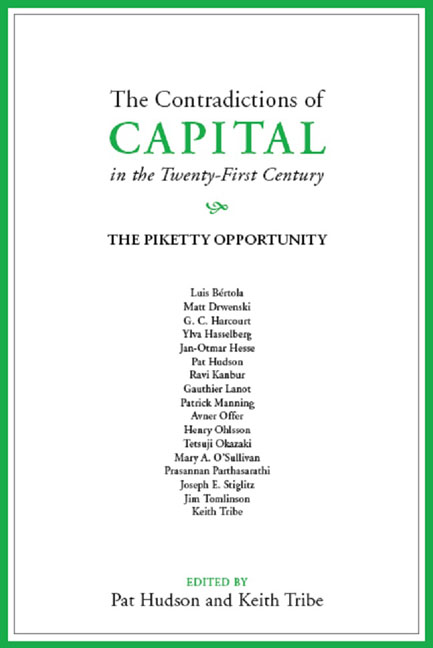10 - Looking at Piketty from the Periphery
Published online by Cambridge University Press: 16 August 2023
Summary
Thomas Piketty’s Capital in the Twenty-First Century fully merits being the object of so much international attention and being the main topic of the present volume. While a critical approach is needed, and while many weak points of the book, or even errors, are discussed in this volume, I cannot start this commentary without asserting my full agreement and concurrence with many points of departure adopted by Piketty.
THE APPROACH
The central question of the book is very relevant today across the globe. Is capitalism always leading, as Marx suggested, towards a steadily increasing concentration of wealth, income and power? Or, on the contrary, are the forces that counteract these trends likely to prevail, making capitalism compatible with democracy and the ideal of an egalitarian society, as the badly interpreted Kuznets curve suggests?
When tackling this question, Piketty adopts some points of view that awaken my enthusiasm: he makes an effort to present an innovative theoretical framework; he bases his conclusions on impressive empirical work, accumulated by large numbers of scholars and with an important degree of methodological ingenuity; and he shows serious commitment, involving himself in controversial policy recommendations that are certainly not likely to be acceptable in the eyes of powerful actors in the economy, in politics and in academia. In short, he offers a precise definition and description of the problem, a theoretical framework to approach and explain it, and some courageous policy recommendations.
The way in which Piketty understands what economic science is about is entirely accurate. Departing from an abstract definition of a perfectly functioning economy and discussing the way in which we should approach this abstract model, the strategy is to see how things really work, what the real trends are, and to try to explain them with a set of tools that largely surpass what is often considered as pure economics. This necessarily involves knowledge generated by other social sciences. Using these different sets of tools is the way in which relevant, penetrating and realistic theories, deeply rooted in historical contexts, can be constructed.
- Type
- Chapter
- Information
- The Contradictions of Capital in the Twenty-First CenturyThe Piketty Opportunity, pp. 195 - 206Publisher: Agenda PublishingPrint publication year: 2016



